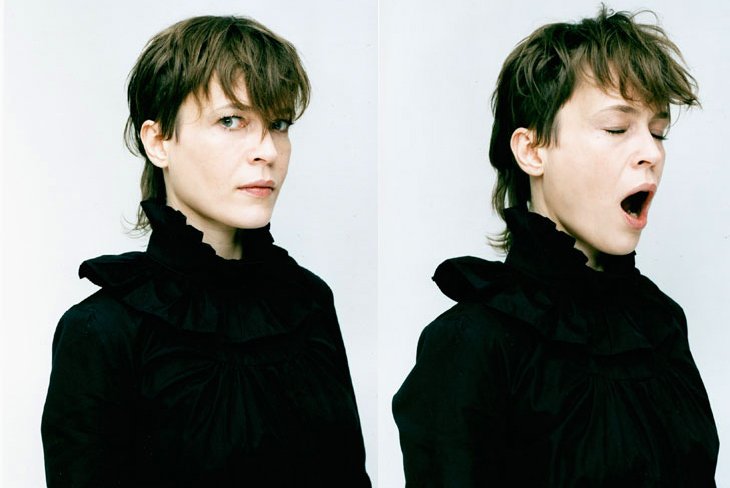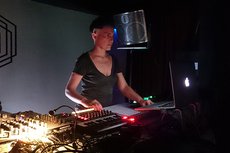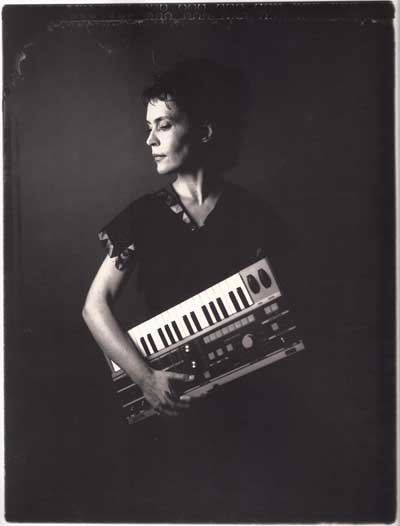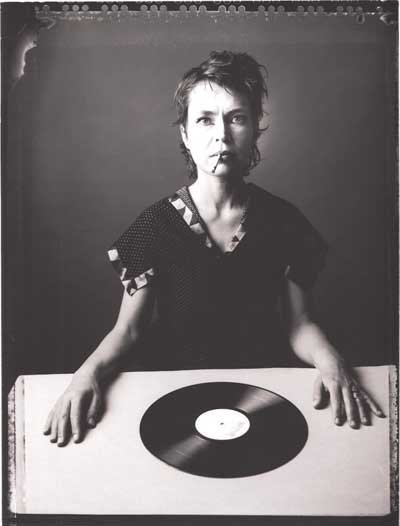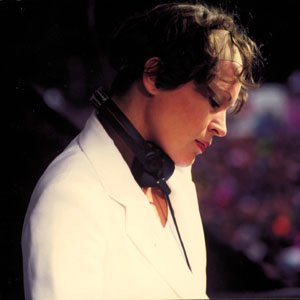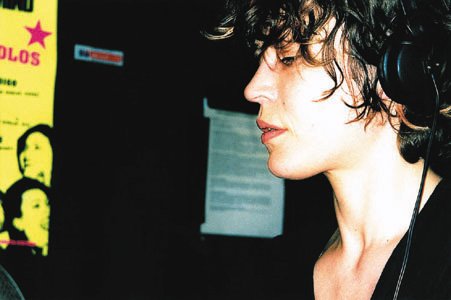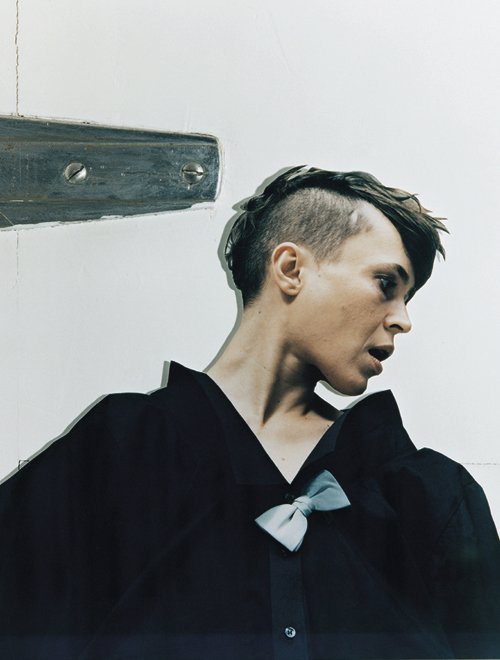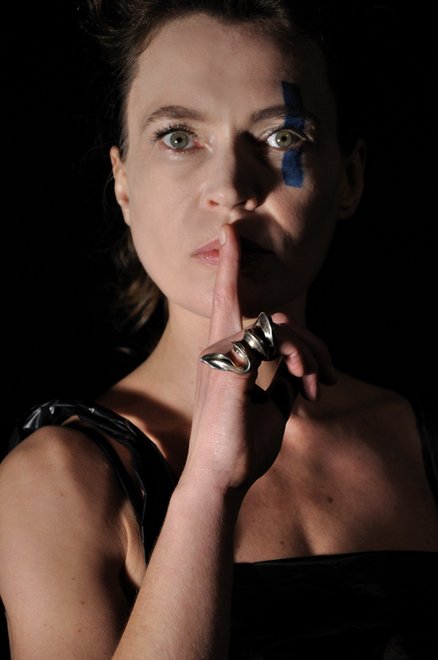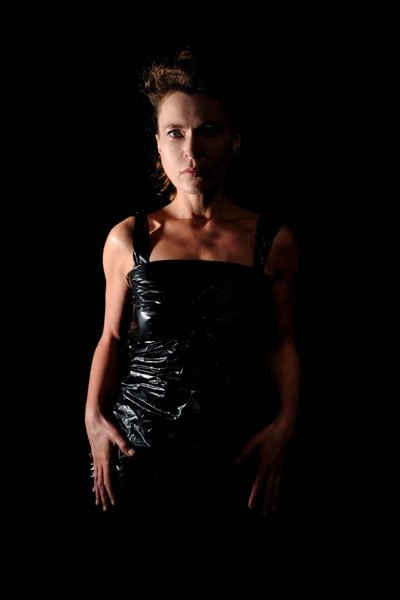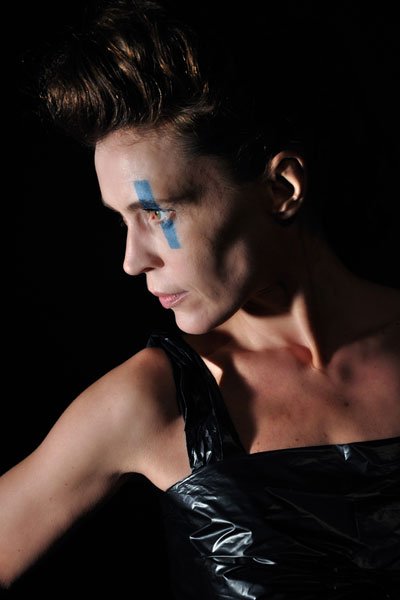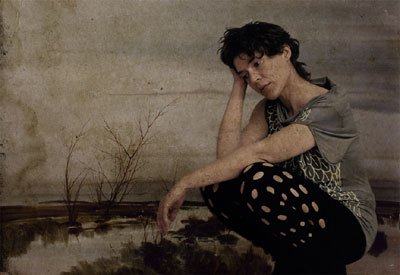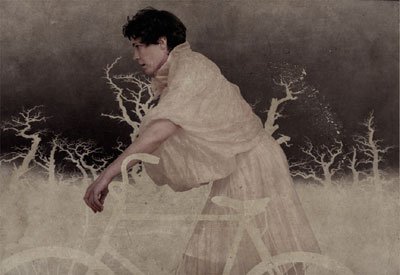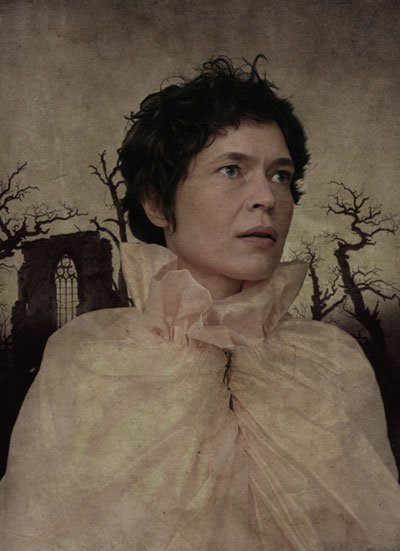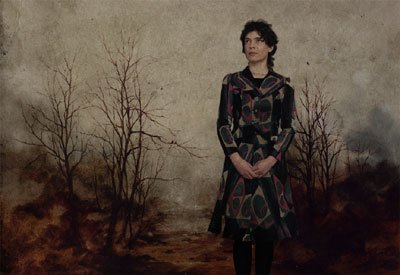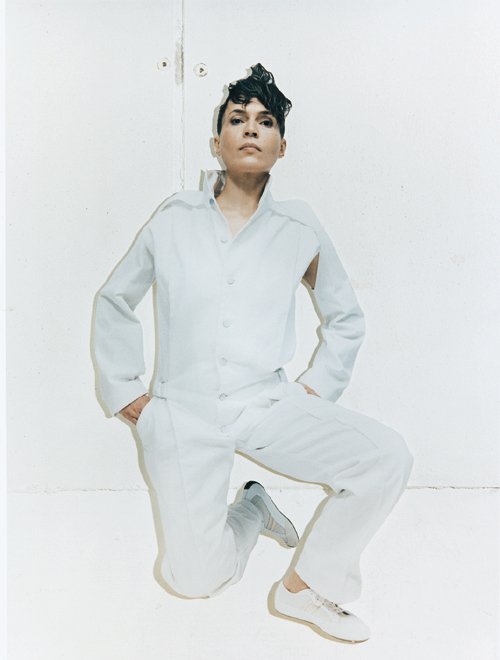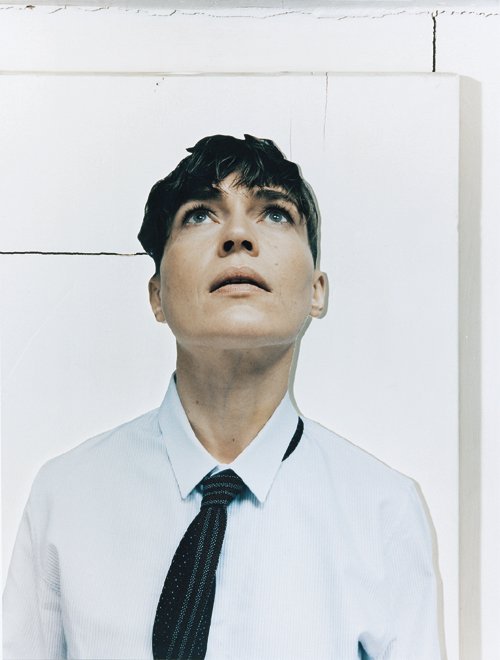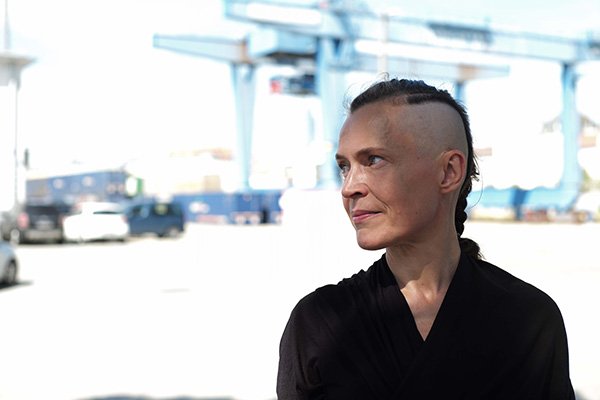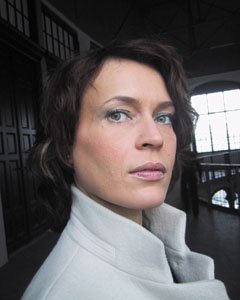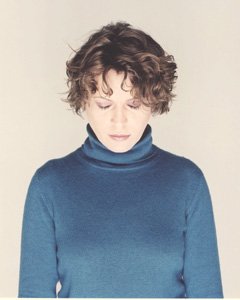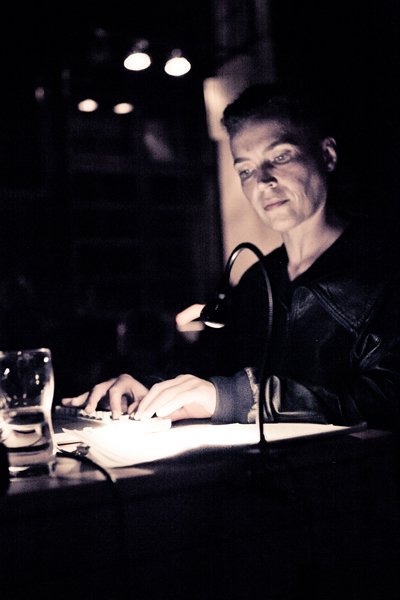The Techno Pioneer
Susanne Kirchmayr alias Electric Indigo is one of the big techno pioneers in the German-speaking world. For more than 25 years she’s been behind the turntables, from the US to Asia. But getting there wasn’t all that easy. In our conversation she tells us why her passion for techno and electronic music cost her two jobs before it became the cornerstone of her career and why she rarely deejays in Vienna.
Werner Sturmberger: DJ or DJANE?
Susanne Kirchmayr: I find DJANE really horrible. I can’t make people stop using it, it’s a tenacious expression. There’s one or the other colleague who uses it on purpose to reinforce a female form to her profession, sure, even though it’s an acronym. It is a dreadful malapropism and simply has this Tarzan and Jane connotation.
What was your first contact with music?
My parents and my brother – I’m the youngest of three children – they all listened to and played music themselves. I also learned to play the piano and grew up with classical music. I barely knew contemporary stuff, and underground not at all – I came across it with a great delay. On the other hand, I had many music-obsessed friends. Back then it was common to share everything and record stuff on tapes, which is a totally sweet thing, now that I think about it.
“For most people back then techno was just German fascist music.”
Did you also make your own mix tapes?
Of course! (laughs)
Is there a particular one that sticks in your mind?
A friend of mine was a friend of Katharina Weingartner from the Ö3 Musicbox radio program. She was on her East Coast hip-hop trip already in the mid-80s. Over her I got my hands on tapes by EPMD and JVC Force. My eyes lit up and I got excited.
How did things start with the deejaying?
One of my favorite bars at the end of the 80s was Trabant on Schleifmühlgasse (in the 4th district – editor’s note). The usual suspects of Viennese nightlife played their favorite records there. So I knocked on the door and asked if could also do that. It worked out really well. The audience and I had the same taste in music and hey, I was also a pretty girl. Everyone was happy. Until I discovered techno (laughs).
How did you come across techno?
I started with jazz, funk, and hip-hop. That was really big at the time in Vienna. At Black Market (a former cult record shop on Gonzagagasse in the city center – editor’s note) DJ Gebel, who was already into house very early, played DJ Rush to me. I was completely over the moon and thought: What the hell is that?!? I’d never heard anything like that before! For me, that was the gateway to Chicago and Detroit techno and the entire Underground Resistance stuff. This was the essence of what I’d already liked about music before. The bass and the beats, the funk, the simultaneity of the physical and mental stimulation. Not many people in Vienna could get into that. For most people back then techno was just German fascist music.
“I knew Jeff Mills or DJ Rok were getting 1000 German marks per night. I wanted that, too.”
And techno finished your early DJ career?
Yeah, I lost my job at Trabant pretty quick. To call this a job is actually a joke as it was paid really bad: The whole night got you 200 schilling (circa 30 euro) and two free drinks. Incredibly stingy. I went there on my regular day and there was simply another DJ already standing there, and I was asked to leave without further ado.
How did you keep your head above water these days? After all, DJ and free journalist are not exactly known as jobs one gets rich off…
My parents died in a car accident before I finished high school. I lived quite long off a pretty high orphan pension. When I became 26 they pulled the plug. From then on I lived off my credit card. At that time there weren’t many grocery stores in Vienna where you could pay without cash. And as I was constantly broke I went to Meinl am Graben (a fancy gourmet food store in the city center – translator’s note) for my shopping. (laughs) I lived on credit and then I had to sell the MG.
You had an MG?!?
An MG and a Jaguar, yes. I also bought old-timers from the insurance payments, which I had to sell off again one by one.
How did it go on after Trabant?
Parallel I was also turned down by the Musicbox editors at the radio channel Ö3, for whom I’d been making features for a while, because of my new musical preferences. Werner Geier supported me greatly although he actually didn’t like techno. All the others found it unbearable. In 1991 Fritz Ostermayer (also a member of Musicbox at the time – editor’s note) told me that techno was totally over and that he was done with it a long time ago. Somehow everything was gone at once. Thereafter I got to know the German techno scene and quickly realized that a lot of things were possible there. I had my first gigs as techno DJ in Munich.
“Djing’s not just a technique – it’s also a matter of luck!”
Then you ended up in Berlin?
I had an epiphany, so to say. From then on I knew what I wanted to do, namely the same thing the DJs I’d seen and admired did, like Jeff Mills or DJ Rok. I knew they were getting 1000 German marks per night. I wanted that, too. I took out a loan and told the people at the bank that I would go to Berlin now and became a techno DJ. And indeed, that worked out quite soon.
Why did you leave Berlin?
For personal reasons, actually. It was a hasty departure from Vienna. There were a few unresolved issues. I also never really had a cozy home in Berlin, always subletted from someone. The last place was incredibly cool: the entire floor of a factory, more than 100 m2, only that in the winter the snow piled up inside… Then I spent my nights on the desk at Hard Wax. (laughs) I had a camping bed and a hot plate on the ground. A miracle that I even had a shower. It was all a bit rough. But the impetus was that I had to leave the place.
Are you from Vienna originally?
I’m sorta Viennese. Born in Vienna and finished high school in Vienna but grew up 17 years in Upper Austria in-between. I got around a lot, but Vienna remains my base. I’ve never given up my apartment in the 3rd district.
“This density of odd existences in Vienna is really great.”
You grew up in Wels?
In a town where I have not actually been since 1984. But it was also beautiful and very special how I grew up there. The factory terrains were like a small autonomous kingdom. There was a volunteer fire brigade, the mill, the noodle factory, a printing shop, a farm, and a bricklaying company. There was a huge garage with cars from all decades. And workshops. I could check-out everything, hold a hose from the fire brigade, jump around on piles of cement, stick my finger in poisonous printing ink, which wouldn’t come off anymore. There were fields on the terrain, a lake you could skate on in winter, trees to climb and apples to steal. A paradise for me as a kid. Bizarre, but great.
Has it become harder to get by financially in the music business?
Actually, I’ve noticed that since about 2009 that this bank crisis is taking effect. Although I can’t tie this to one factor – be it myself, my booking agency, or the economic situation. But in general it’s getting obvious that the middle class is shrinking. There are a few with mega-incomes, whose earnings get more and more obscene, and a large mass of precariously working locals. I’m very lucky that I could gain a foothold in another field as well. In this thing scraping between avant-garde and New Music. This has developed quite well over the last years and could compensate for most of the losses in the DJ business.
How often do you still deejay?
Something like four times a month. But I rarely play in Vienna. Per year I get like one request from here. Mostly for far too little money. Sometimes I find the offers here almost insulting. I’m treated like a local, perhaps because I am not good enough or not known enough for Viennese bookers. In Vienna I almost have the feeling as if people are angry that I still exist. (laughs) But luckily there are other commissions, and I perform a lot in Berlin.
What makes a good set for you?
The art of deejaying is to connect complicated things in such a way that it makes sense musically. A set is good when I manage to build in pieces which are perhaps a bit awkward, and in such a manner that people can understand why I find them so great. It’s not just a technique – it’s also a matter of luck. The atmosphere has to be right, the sound system, the space, the vibe. Also I have to be fit and in a good mood for it to work out. But there are also these evenings when people leave during the tracks I like the most. That’s terrible. Not only for me, but for the people too, I’m aware of that. Sometimes it just doesn’t fit. Bad luck. But that hardly happens.
What are the differences between Vienna and Berlin for you?
Vienna is more mixed up in comparison to Berlin. In Berlin the scenes exist in their purest sense: hipsters, ravers, previously the typical social cases from Neukölln, pensionists. There are certain corners in Prenzlauer Berg where all the mothers are 35 and all children three years old – and there’s no other people. When I’m there, coincidentally, then there’s me, too. I get strange feelings, I find everything too homogenous difficult. Vienna isn’t so ghetto-ized.
What do you like about Vienna in particular?
There are still these obscure pubs where one can encounter pretty freaky people. Not freaky in the sense of the scene, rather these odd existences. The relatively high density of them in Vienna is really great.
Name some special places…
Vienna has something informal and intimate, small and relaxed. I like the 1st district a lot, apart from Kärntner Straße. In summer – and I find this an incredible luxury – I often bike through Prater park in the late morning, along the Danube to the Freudenau hydroelectric plant and jump into the water a bit further up. I love this path along the Danube between the container terminal and the power plant, everything seems so wide and big. And I also find parts of the 21st district great, they’re something like the antithesis to the city center. Especially these worker districts and social housing buildings. I find it outrageous that there are so many right-wing voters sitting in them. The whole area around the Arbeiterstrandbad public beach is like a paradise. And the Danube Island tops it off, just fabulous.
Susanne Kirchmayr was born in Vienna in 1965 and spent her youth in Wels. She grew up in a music-affine family and learned to play the piano. She became acquainted with pop and underground music later through her friends. Shortly after discovering techno she moved to Munich first and then on to Berlin in 1993 to start her career. She worked at the legendary Hard Wax record store and made a name for herself as a DJ. Three years later she returned to Vienna. In 1998 Susanne founded the female artist network “female:pressure”, which now comprises more than 1700 DJs, VJs, promoters, and event managers in 65 countries. Since a few years she is also active in the fields of avant-garde and New Music.

